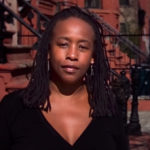Cities around the world, and the people who live, work and do business in them, are rethinking the social, political, environmental and economic life of urban centres for the age of driverless cars and exponential technologies.
Join sparks & honey for an exploration of the Future of Cities with our Advisory Board Member, Dr Laura Forlano, design lead on the Driverless City Project – an Illinois Institute of Technology Nayar Prize finalist.
- How does 21st-century society — which has been built, in ways large and small, around human drivers — change and reconfigure when they all become mere riders?
- How might designers understand and engage with the opportunities presented by these and other emerging technologies?
- How might designers ensure that these technologies reflect our values and ethical commitments?
- What new questions will designers need to ask and what new skills and literacies are necessary in order to design for the driverless city?
- How might designers involve communities and practice inclusion of diverse needs and aspirations?
About Dr Laura Forlano
Laura Forlano has been working at the intersection of emerging technologies and the future of cities for the past ten years in the US, Canada, Hungary, Germany, Spain, Australia and Japan. She is a social scientist and design researcher currently working as Associate Professor at the Illinois Institute of Technology’s Institute of Design. She is a Fulbright scholar and National Science Foundation scholar whose perspectives are sought out by the media, academic and professional institutions, and conferences on topics related to smart cities and the ‘internet of things’.
She has presented to The Art Institute of Chicago, Northwestern University and The Architecture League of New York and was most recently a keynote speaker on “Predicting the City” (Amsterdam, The Netherlands) and the SmartCity Expo World Congress (Barcelona, Spain).
Laura works with a range of organizations including the Institute for the Future, the Social Science Research Council, New America Foundation, the Ford Foundation, the Open Society Foundations and the World Bank and has testified before the New York City Council and represented the public on the Federal Communications Commission’s Consumer Advisory Committee.
The Driverless City project was recently featured in The New York Times Magazine and in an exhibition at the Vienna Biennale.








